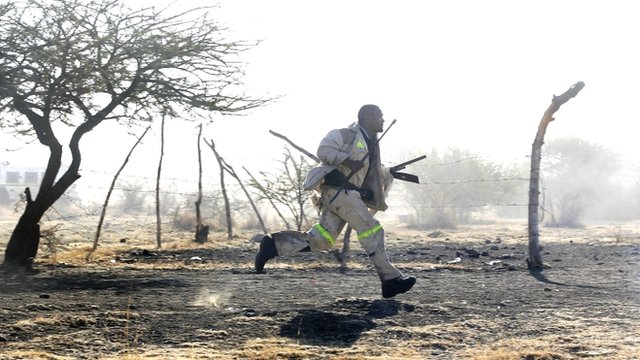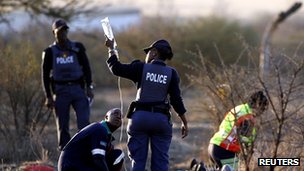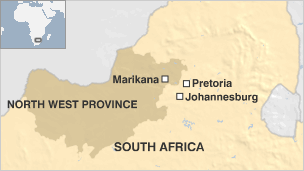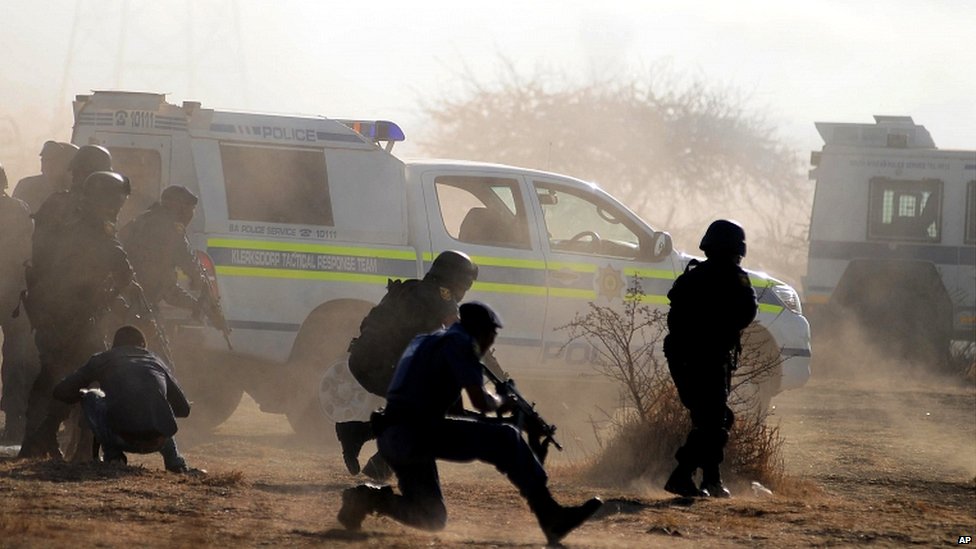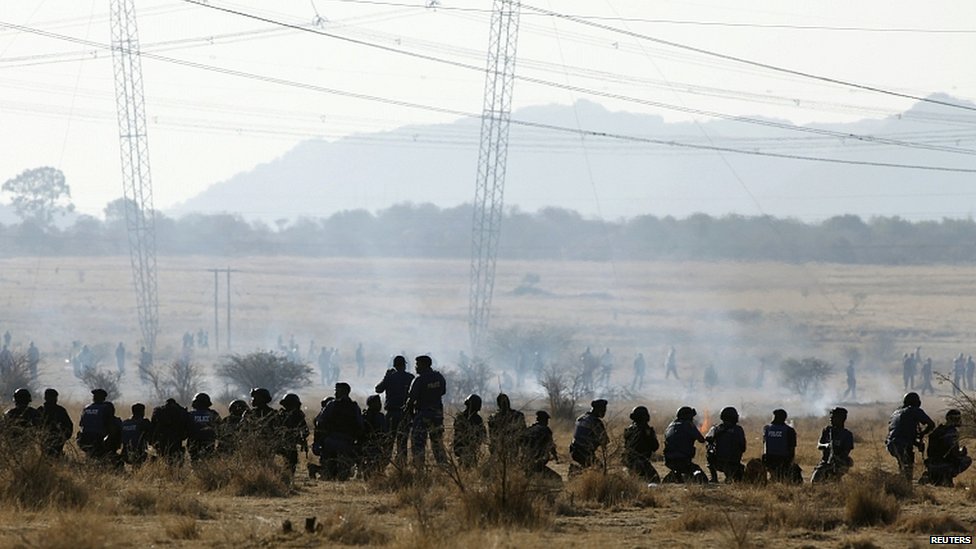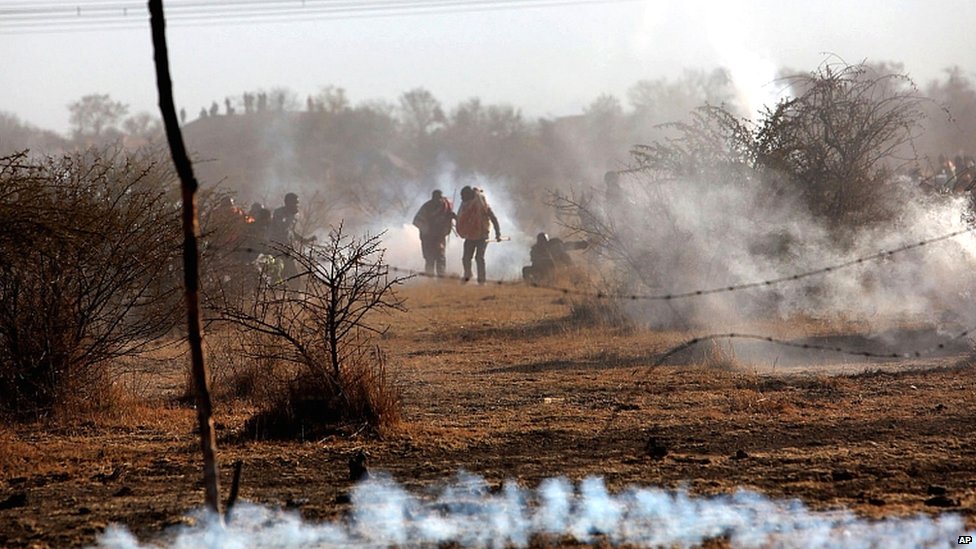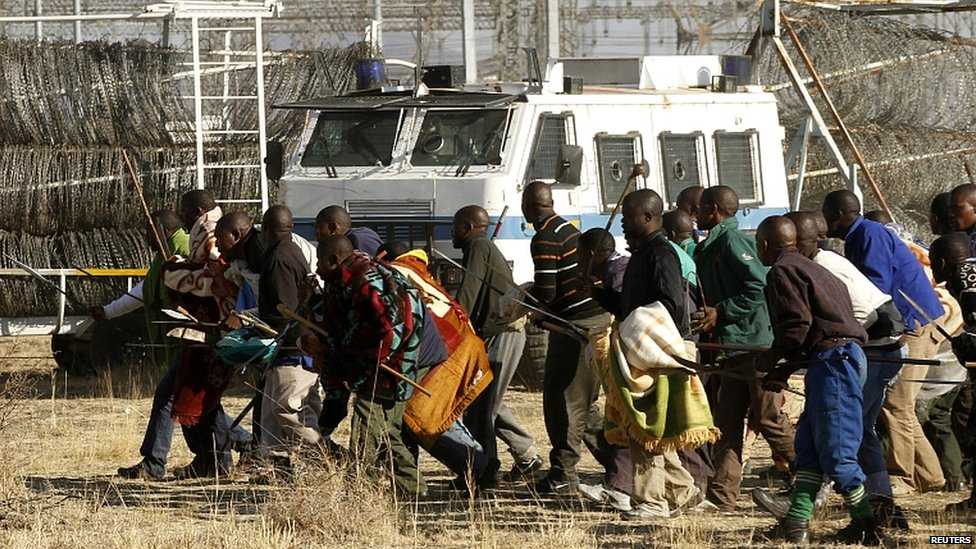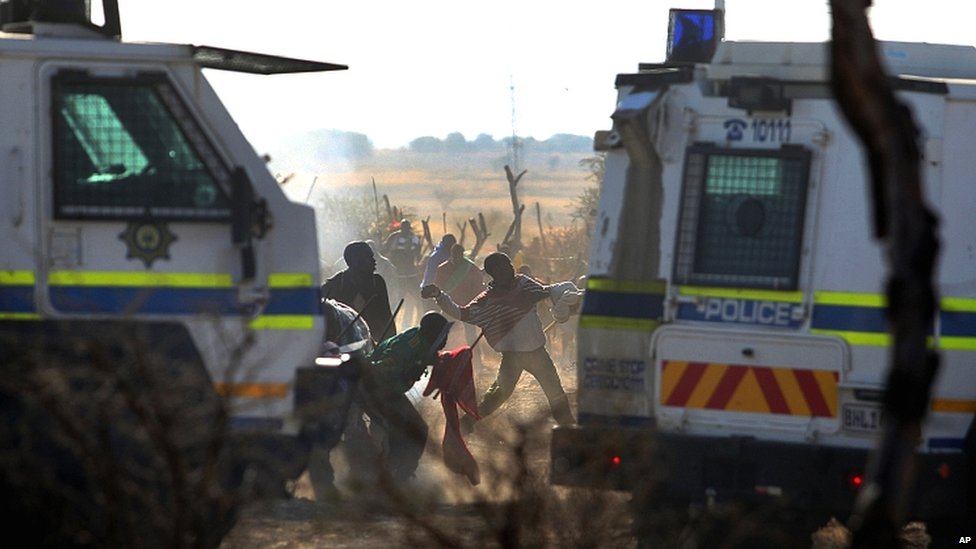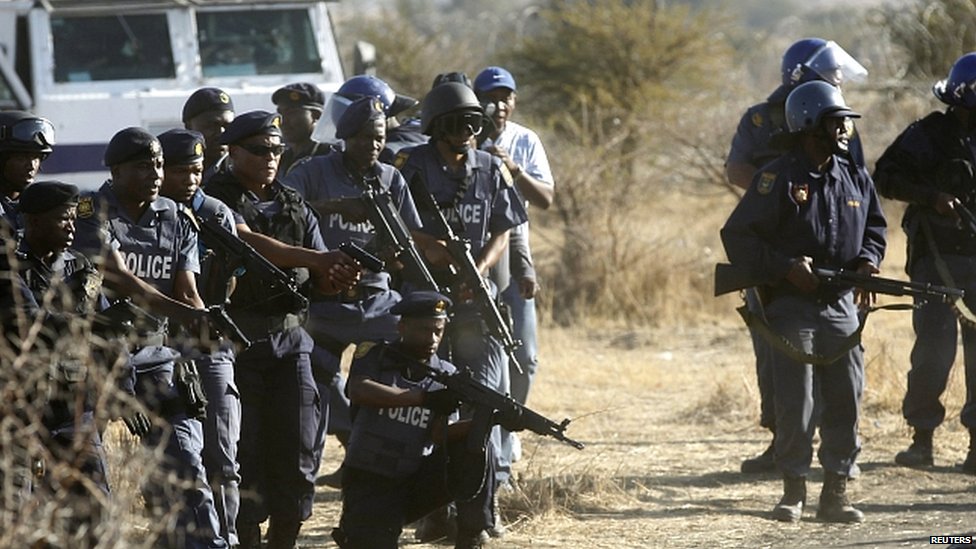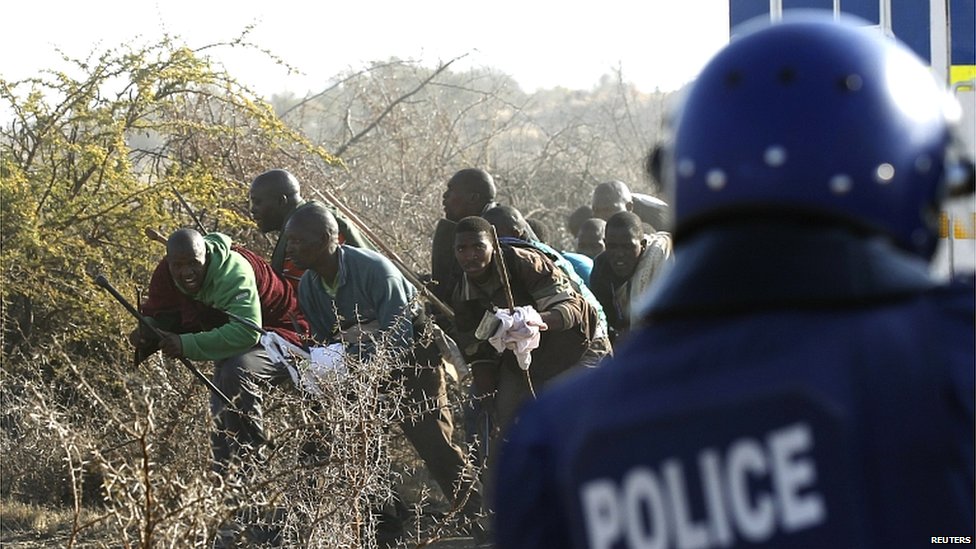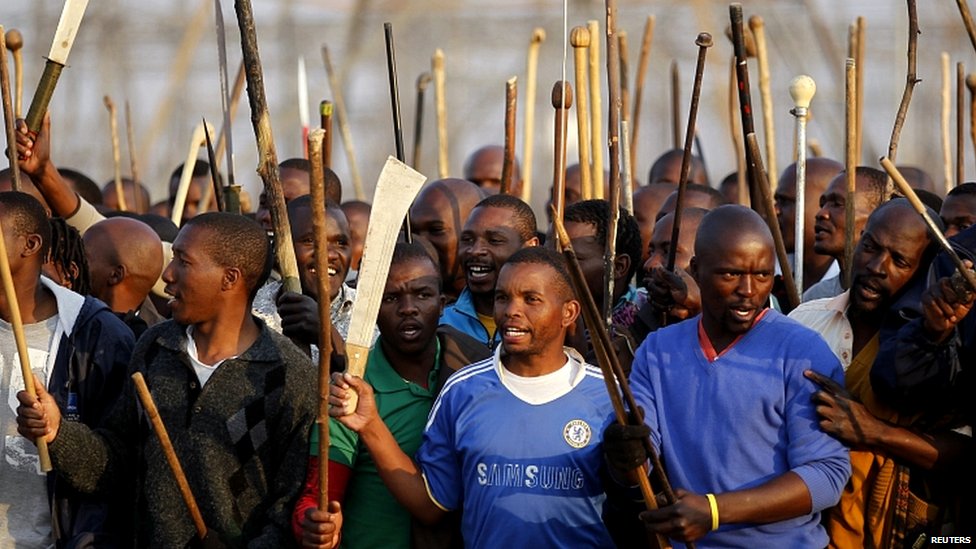Askari Kanzu
JF-Expert Member
- Jan 7, 2011
- 4,598
- 1,233
S. Africa police fire at striking mine workers
By Jon Gambrell, Associated Press

JOHANNESBURG – South African police opened fire Thursday on a crowd of striking workers at a platinum mine, leaving an unknown number of people injured and possibly dead. Motionless bodies lay on the ground in pools of blood.
Police moved in on striking workers who gathered near the Lonmin PLC mine Thursday afternoon after urging them to give up their weapons and go home to their hostels and shacks. Some did leave, though others carrying weapons began war chants and soon started marching toward the township near the mine, said Molaole Montsho, a journalist with the South African Press Association who was at the scene.
The police opened up with a water cannon first, then used stun grenades and tear gas to try and break up the crowd, Montsho said.
USA Today
By Jon Gambrell, Associated Press
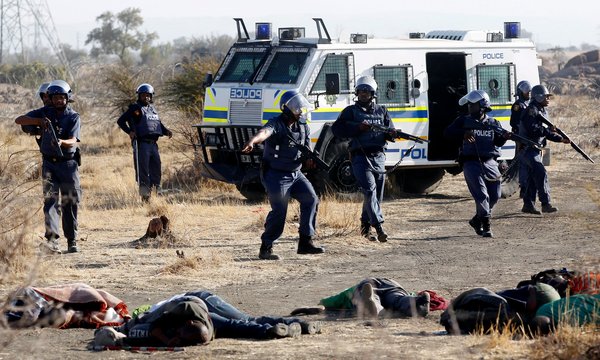
JOHANNESBURG – South African police opened fire Thursday on a crowd of striking workers at a platinum mine, leaving an unknown number of people injured and possibly dead. Motionless bodies lay on the ground in pools of blood.
Police moved in on striking workers who gathered near the Lonmin PLC mine Thursday afternoon after urging them to give up their weapons and go home to their hostels and shacks. Some did leave, though others carrying weapons began war chants and soon started marching toward the township near the mine, said Molaole Montsho, a journalist with the South African Press Association who was at the scene.
The police opened up with a water cannon first, then used stun grenades and tear gas to try and break up the crowd, Montsho said.
USA Today
